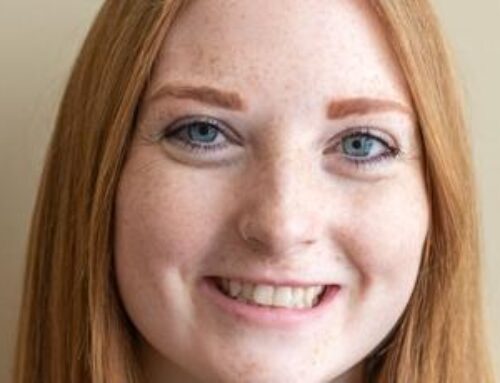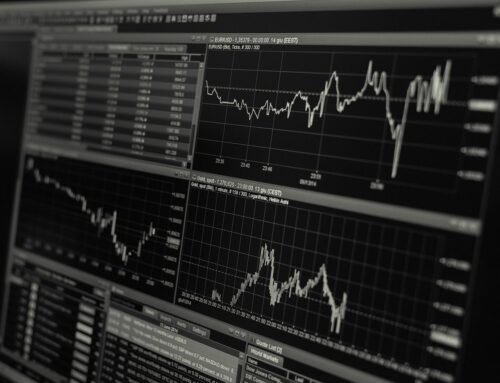Asset Management: Big investors shift away from US markets
June 8, 2025

One scoop to start: BlueCrest Capital Management, the hedge fund turned family office founded by billionaire Michael Platt, has gained more than 28 per cent this year after betting on a weakening US dollar.
And one podcast: In the latest episode of Behind the Money, the FT’s Antoine Gara, US private equity and deals editor, considers why alternatives giants Blackstone, KKR and Apollo are moving in different directions and who’s most likely to perform best in the future.
In today’s newsletter:
-
Investors question ‘whether US exceptionalism is a little less exceptional’
-
We have ‘surrendered more to the machines’, says AQR’s Cliff Asness
-
Junk bond sales surge as companies try to beat fresh tariff uncertainty
Big investors shift away from US markets
Big institutional investors are shifting away from US markets as Donald Trump’s trade wars and the country’s escalating debt fuel fears about the dominance of American assets in global portfolios.
The US president’s erratic trade policy has shaken global markets in recent months, sparking a sharp sell-off in the US dollar and leaving Wall Street stocks lagging far behind European rivals this year.
Trump’s landmark tax bill, which is forecast to add $2.4tn to Washington’s debt over the next decade, has also increased pressure on US Treasuries. BlackRock chief executive Larry Fink warned on Thursday that the US was “going to hit the wall” unless the economy grows quickly enough to manage higher deficits from government spending, joining a growing chorus of financiers warning about the country’s mounting debt.
The move away from US assets has pushed up European markets at the expense of their US counterparts and has been signalled by surveys of big institutional investors’ allocation decisions. A poll of fund managers published by Bank of America last month showed the biggest underweight in the US dollar in nearly two decades.
“The US has been the best place in the world to invest for a century, but I’m starting to hear investors question whether US exceptionalism is a little less exceptional, and think about whether to position their portfolios accordingly,” Howard Marks, co-founder of $203bn alternatives manager Oaktree Capital Management, told the Financial Times.
“People need to rethink” their exposure to the US, said Seth Bernstein, chief executive of AllianceBernstein, which manages $780bn in assets.
“The deficit has been out there as an issue; it’s just getting worse,” he added. “I think it is untenable for the United States to continue borrowing at the pace it’s borrowing . . . When you couple that with what’s going on with the unpredictability of our trade policy . . . It should cause people to pause and consider: how much do you want concentrated in one market?”
Markets in Europe, where a €1tn German spending spree on defence and infrastructure is expected to boost growth, have been a beneficiary of investors’ wariness over US exposure.
“There is more interest in Europe,” said Joana Rocha Scaff, head of European private equity at New York-based investment firm Neuberger Berman.
“It’s more than tariffs. The macro backdrop in Europe has not been more benign than the US but it’s more stable . . . It’s not just the trade wars but some of the domestic instability [in the US] and proposed tax bills that impact non-US investors.”
Are you rethinking your US exposure? Email me: harriet.agnew@ft.com
Quant titan Cliff Asness embraces AI
Rage against the machine? Quant titan Cliff Asness has decided it’s not worth it anymore.
AQR Capital Management, the $136bn group he founded 25 years ago, is embracing artificial intelligence and machine learning techniques for trading decisions, ending years of reticence from one of the sector’s historic holdouts.
The Connecticut-based hedge fund has “surrendered more to the machines” after years of experiments, Asness told my colleagues Costas Mourselas and Amelia Pollard.
“When you turn yourself over to the machine you obviously let data speak more,” he said.
All quantitative hedge funds — including Two Sigma, Man Group’s AHL division and Sir David Harding’s Winton Capital — use computing power and algorithms to filter vast amounts of data and then employ sophisticated models to make investing decisions.
But AQR has previously been hesitant about removing humans from trading decisions, instead favouring rules-based computer models developed by humans to target explainable market patterns.
Despite first investing in broad-based machine learning technology in 2018, AQR has only more recently expanded the strategy beyond stocks to other asset classes, and is now using the technology to determine the weightings given to different factors in a portfolio at any time.
The fund also now uses machine-learning algorithms to identify market patterns on which to place bets, even if in some cases it is not entirely clear why those patterns have developed.
Read the full interview here to find out why the private equity industry has attracted Asness’s ire.
Meanwhile pity the poor quants at Man Group’s AHL. They’ve been ordered to temporarily return to the office five days a week amid a period of poor performance. It’s to support what the company calls “an ‘all hands on deck’ cross-team research project”. The change applies to about 150 people in London — just under 10 per cent of the overall group’s 1,700 employees globally.
“You cannot imagine how badly this has gone down with quants,” said one person familiar with the situation. “The mood is bad.”
Chart of the week

US companies with risky credit ratings are rushing to sell junk bonds ahead of an expected resurgence of trade tensions in July that could depress demand for corporate debt, writes Will Schmitt in New York.
Companies with weaker credit ratings tapped the high-yield bond market for $32bn in May, the most since October, according to data from JPMorgan. Junk bond sales in the first week of June already have surpassed April’s $8.6bn total.
Bankers and investors say they expect a steady flow of new debt sales the rest of the month and into July while demand remains high and market uncertainty stays relatively low.
But the expiration of the 90-day pause on Donald Trump’s so-called “liberation day” tariffs early next month could set up another surge in uncertainty, echoing the early April ructions that ground the market for new levered debt deals to a halt.
“You get into these patterns where the market gets into a lull and gets ahead of itself. It feels good now, but it’s setting up for some volatility in July,” said David Forgash, a portfolio manager at Pimco.
The extra costs paid by risky corporate borrowers to lenders compared to US government debt, known as spreads, jumped from 3.5 percentage points on April 1 to 4.61 percentage points on April 7, according to Ice BofA data.
That was the highest level for corporate borrowing costs since May 2023, as investors demanded a higher premium for the added risk they saw following Trump’s April 2 tariff announcement.
As progress appeared to be made in trade negotiations between the US and China, spreads retreated back to the levels experienced in late March. Still, they have not come back to the historically low marks seen in late 2024 and early 2025, when junk bond spreads fell below 3 percentage points.
Five unmissable stories this week
Donald Trump’s plans to take public the two finance agencies that buy the majority of mortgages in the US, Fannie Mae and Freddie Mac, could generate a giant windfall for two of the president’s most strident billionaire backers: Bill Ackman and John Paulson.
Private credit is now so intertwined with big banks and insurers that it could become a “locus of contagion” in the next financial crisis, researchers from Moody’s Analytics, the Securities and Exchange Commission and a former top adviser to the Treasury department have warned.
Texas has removed BlackRock from a blacklist of companies it barred from receiving the state’s investment funds, three years after targeting the asset manager for its environmental policies.
Singapore’s Temasek, one of the world’s biggest investors, is drastically reducing its investments in early-stage companies, because of interest rate rises and following some embarrassing blow-ups for the state-owned fund.
Scalable Capital, a German investment platform backed by BlackRock, has raised €155mn in fresh equity at a valuation of about €1.5bn, as part of a push to become a pan-European investment powerhouse in the model of Charles Schwab.
And finally

In 1959, David Hockney moved from Bradford to begin his studies at the Royal College of Art, London. A new exhibition at Hazlitt Holland-Hibbert focuses on the love paintings of this period before Hockney moved to the US at the end of 1963.
In the Mood for Love: Hockney in London, 1960-1963
21 May-18 July 2025
https://hh-h.com/
Search
RECENT PRESS RELEASES
Related Post




